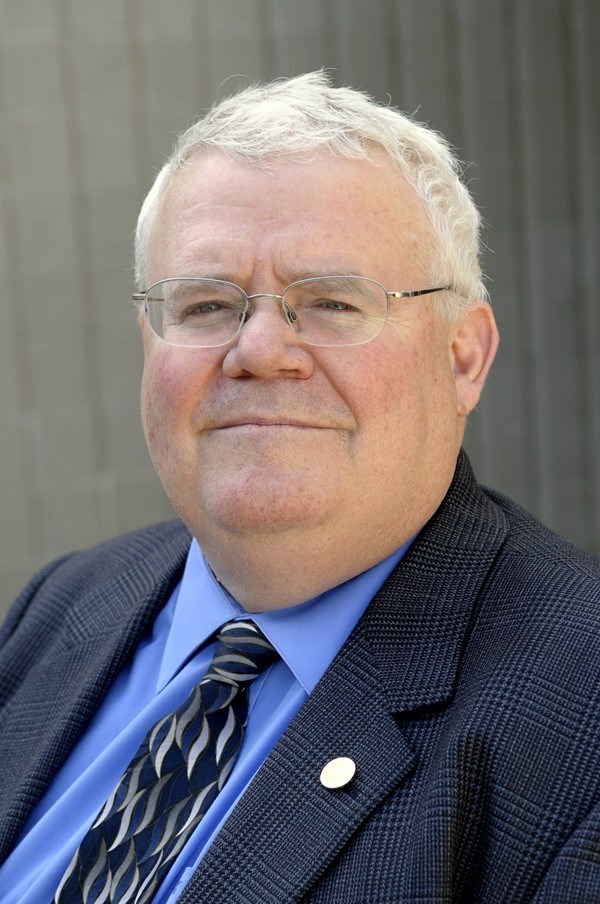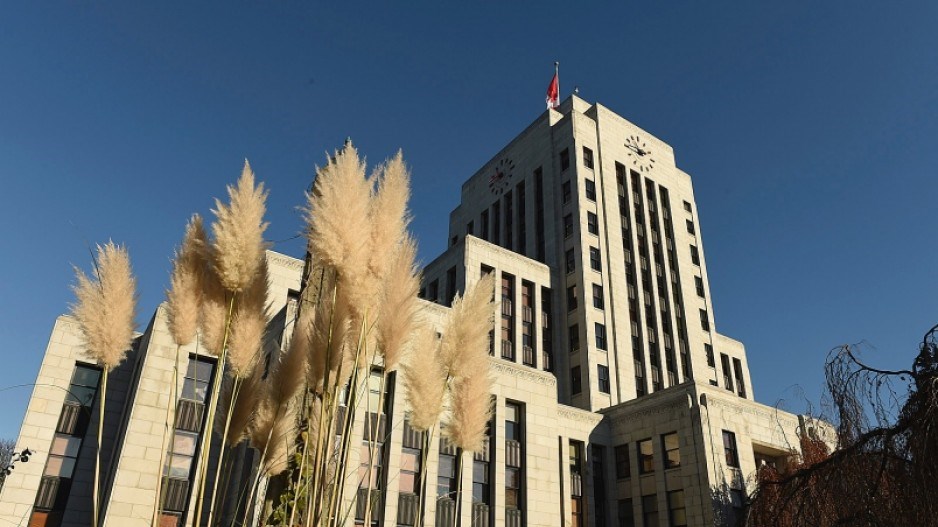Vancouver city council’s drive to create an independent auditor general’s office could be built on models implemented in Halifax and Ottawa with up to 10 staff and require an annual budget of $1.1 million to $2 million.
That is one of several recommendations in a 63-page research report authored by the Canadian Audit and Accountability Foundation that goes before council Wednesday.
A majority vote by council on the report’s recommendations would trigger further work required to set up an office, which could begin next year with the hiring of an auditor general and a fully operational office by 2022.
“Some municipal auditors general believe that a minimum of 10 professional audit staff will allow the office to operate with multiple audit teams and to provide the capacity needed for effective supervision, quality review and compliance with professional auditing standards,” said the report, pointing to offices created in Halifax and Ottawa as examples.
But the report comes as the city continues to grapple with the financial effects of COVID-19, with the most recent forecast from staff estimated at a $124 million loss in revenues this year.
In December 2019, council directed $500,000 be set aside in this year’s budget toward the establishment of an auditor general’s office. That included $50,000 for the report going before council Wednesday.
The 2021 budget is still a work in progress, with council having to wait until mid-December to debate and finalize priorities for next year, and determine whether that includes more funding for an auditor general’s office.
Coun. Colleen Hardwick has led council’s drive to create an independent office, successfully moving a motion in October 2019 to begin the process of getting an auditor general in place.
Since being elected in 2018, Hardwick has regularly questioned staff during council meetings about city spending and argued for an independent look at the city’s books and services to determine whether public money is being well spent.
“Plainly put, we need an A-G office to help build trust in our modern local government,” said Hardwick in an email Monday, noting Halifax and Ottawa are joined by Toronto and Montreal as cities with auditor general offices.
Hardwick estimated a “ballpark budget” for an office in Vancouver at $1.5 million annually. The office, she added, would take a couple of years to be operating at full capacity.
“We have spent less than 10 per cent of the approved 2020 budgeted amount, so ideally can carry that forward in 2021 to onboard the auditor general position,” she said. “This is an incremental process, but the intent is that it be fully operational by the end of our term [in the fall of 2022].”
Asked about the city’s revenue loss related to COVID-19, and whether the creation of an expensive auditor general’s office is warranted at this time, Hardwick responded: “Absolutely. This is precisely the time the city needs to be examining its spending and performance.”
In Halifax, which has a population of 440,000 and a recent operating budget of $965 million and capital budget of $164 million, auditor general Evangeline Colman-Sadd runs an office with 10-full time staff.
The office’s annual budget is $1.1 million, of which $180,000 went to Colman-Sadd’s salary in the year ending March 2019, according to the Halifax Regional Municipality’s statement of compensation.
In Ottawa, which has a population of one million and a recent operating budget of $3.4 billion and capital budget of $730 million, auditor general Ken Hughes oversees an office of nine people plus “contractors.”
That office’s annual budget is $2 million, with Hughes’ salary in the $224,000 to $241,000 range.
Hughes said Monday by telephone from Ottawa that spending money to create an auditor general’s office in Vancouver — even during the pandemic — will achieve long-term savings.

Ken Hughes | Submitted
He cited a recent example in Ottawa where his office conducted an audit on a city contract for green waste pick-up. The investigation discovered over-payments of $12 million and found issues with the wording of the contract and manner in which the request-for-proposal process was led.
“City staff renegotiated that contract and were able to reduce some of the loss going forward,” Hughes said. “Certainly for an audit that would have cost my office in manpower something in the order of $100,000 to $150,000 to conduct, we returned at the very least $12 million in actual savings.”
Hughes said he obviously has a vested interest in more cities having their own auditor generals. But he said audits are proven to pay for themselves and that taxpayers will benefit from an unbiased analysis of how the city conducts its business.
“Every organization should have an audit function, and the City of Vancouver does have an audit function and they are to be commended for having an audit function,” he said. “But the issue is whether or not that audit function is independent. Right now, the audit function is buried within the administration and the administration has some say into what they audit and what they don’t audit.”
As for the financial hardship experienced by cities during the pandemic, Hughes said creating an auditor general’s office now will return additional funds to the city “that could be used to make up the shortfall because of COVID.”
Vancouver’s population was estimated last year at 685,885 and its 2020 operating budget is $1.6 billion. The city’s approved capital budget for new projects this year was $502 million.
Vancouver currently has two audit functions: annual financial statement audits and internal audit. City management prepares annual financial statements that are audited by a private sector accounting firm.
Audit results are reported directly to city council.
The city’s internal audit division forms part of city management’s overall approach to risk management and control, with a focus on assessing the effectiveness of governance, risk management and internal controls.
Last year, for example, the division conducted an audit of city employee expenses. A summary report of the audit was released in April 2019 and posted on the city’s website.
“A small number of items were noted, which while not material, did not comply with the city’s policy for business meetings and discretionary expenses,” said the report, noting a policy change in 2018 may have led to non-compliance. “The process will be strengthened by improvements in monitoring employee P-card purchases and reimbursements, and communicating reminders regarding requirements for travel claims to increase staff awareness.”
Coun. Sarah Kirby-Yung, who belongs to an informal working group with Hardwick to create an auditor general’s office, echoed Hardwick’s points about building trust in local government via an independent analysis.
“What I hear a lot from residents is that there’s still a level of confusion over why their taxes are continually going up, but they have a perception of the degradation of core city services,” Kirby-Yung said. “So I think trying to provide clarity and trust in the electorate and that their dollars are being spent well, is really important. The additional reason is that, over time, these [offices] are shown to be a net contributor to city budgets, as opposed to a cost.”
Determining an annual budget for an auditor general’s office will depend largely on how the office is built — whether it has a separate office space from city hall, its own legal services, information technology infrastructure or will it share corporate services.
Other considerations are costs to train staff, contract subject matter experts, publishing and communications, office supplies, licensing fees and professional dues.
The report warned city council should be mindful that its decisions regarding premises, information technology infrastructure, administration and corporate services “impact the budget as well as the degree of independence.”
@Howellings




